|
Another Reggae legend has left us, Bunny Wailer, Neville O'Riley Livingston OM OJ (10 April 1947 – 2 March 2021), one of the founders of The Wailers, with Bob Marley and Peter Tosh, and the last surviving member. He drove Reggae forwards, with an uncompromising sound and ethos and was pure to his Rasta beliefs throughout his career which spanned five decades. As an acolyte of Joe Higgs; a childhood friend of Bob Marley: their families lived close to one another in Kingston, and later in fact his father had a child with Bob's mother, so the two were family, musically and in actuality. Higgs gave singing lessons to the young boys and encouraged them to form a band, which they did in 1963, together with Peter Tosh and Junior Braithwaite - The Wailing Wailers. Signing with Studio One with whom they released over 70 tracks, their first release Simmer Down in 1964, was a great success - Bob left to the USA in 1966, and The Wailers carried on recording without him and Bunny featured as lead vocal in a number of their subsequent hits which he also wrote - The Ska train was chugging along nicely, and hits were frequent, and Bunny's harmonies and occasional lead vocals carried the group, but of course it was Bob who, after a stint in a US prison for cannabis posession, was becoming the focal point. Here Bunny carries the bridge, in the seminal Keep On Moving, released in 1971 - By this time, having recorded The Best of the Wailers with Leslie Kong of Beverly Records, they had moved to team up with the Upsetter - Lee Perry - and their two albums with Perry represent a turning point as their style became rootsier and Perry's production showcased their exquisite harmonies wonderfully. A UK tour beckoned, and in 1973 they hit the road, supporting Desmond Dekker and Nicky Thomas, to promote their first Island album - Catch A Fire - He never made the second Wailers tour, and his last appearance with The Wailers was on the Burning album, before he and Tosh went their own way, perhaps unhappy to play second fiddle to the Bob bandwagon, and reluctant to tour the US and play at 'freak' clubs as Blackwell wanted (in order to raise their profile). He started his own label - Solomonic - and his first release on that was with another sadly departed legend, U Roy - Bide Up, this is the flip to that, from 1972 - His output included reworking Wailers' songs, a pattern he continued throughout his career - His first album, for many, remains his finest work - Blackheart Man - and includes the deeply spiritual Rasta Man, and spreading his vocal wings and expressing his faith proved he was more than just the supporting act to Bob - In fact, whereas Peter Tosh sang almost reluctantly and Bob and the song became one, Bunny was a vocal master - in control and always in harmony with his supporting band. More militant albums followed in the late 70s and into the 80s, received well, but critically he was perhaps always in Bob's shadow. His tribute to Bob - 'Sings The Wailers' was released not long before Marley's death in 1981 - The more rub-a-dub influenced Rock and Groove followed in 1981, but it was his live performances which became his most powerful tools, and so after a seven year absence he wowed the Kingston crowds at the National Stadium with his concert in 1983, backed by The Roots Radics Band - He toured the US, finally, in 1986, and took Madison Gardens by storm. Catch it all again here - He toured New York the following year and also appeared at Reggae Sunsplash in 1987, and there was in his pomp - celebrating his joy and love of Rasta and Roots reggae music. His single releases were hits too - 'Cool Runnings' and 'Rock'n'Groove' and his 1989 album 'Liberation' was heralded as a triumph - A world tour with The Skatalites followed, and a heartfelt tribute album to Bob in 1990 - 'Time Will Tell', for which he won a Grammy. He won another for his 50th Anniversary Tribute to Bob in 1995, as well as dabbling with dancehall trends and fashion in other releases in the 90s. However, it when he was recreating the Wailers' majesty he seemed most at ease and poignant - One more album followed in 2000, 'Communication' which features all his own work, but perhaps was a step too far as he tried to marry rap, poetry and the spoken word into a cohesive whole. However, there are bright spots and it is clear Bunny still held the flame aloft when singing about injustice and in glory of Rasta - He focussed, in his last years, on politics, forming his own party and campaigning on youth issues as well as calling for the decriminalization of cannabis.
Awarded the Jamaican Order Of Merit in 2017 and Order of Jamaica in 2012, and a Reggae music legend, Bunny suffered a stroke after stress following his wife's disappearance in May 2020. Sadly after a second stroke in December he sadly passed on 2 March 2021, leaving a wonderfully powerful and rich spiritual and musical legacy. Don Pablo will host a Tribute this coming Sunday in honour of the last Wailer, Bunny.
0 Comments
U Roy the DJ Originator sadly left us last week. He was one of the great Reggae music legends in a career which spanned 5 decades of musical creativity. Across all media there has been an outpouring of respect for him. I will be presenting a Daddy U Roy Special on ThamesFM this coming Sunday, live from 2-6pm UK time, in which I will attempt to showcase the man, his music and his special character, charisma and personality which touched the lives of so many. Please share this far and wide and join me as I celebrate the life of a true great and play some of his music which will live on long after all of us have gone. A DJ innovator, Ewart - U Roy - Beckford 28/9/42 to 17/2/21, was born in Jones Town to a devout Christian family - his mother wanted him to join the choir at the Seventh Day Adventist Church she was a member of. He told her, no, he wasn't going to follow her or her beliefs. A Rasta from an early age, he believed in the oneness of people, together under Jah, and his faith underpinned his life and his music making. He started DJing in 1961 initially for Doctor Dickie's Dynamite sound, a sound owned by Dickie Wong. In 1965 he moved to Sir George The Atomic, did some understudy Djing to Count Stitt at Coxsone's sound, before in 1968 hooking up with King Tubby and his Home Town Hi-Fi sound. Tubby had heard U Roy perform and together the two were a potent force - originating and innovating versions. Lee Perry and Bunny Lee - producers without sound systems - saw the potential of the technically gifted Tubby and the lyrically creative U Roy - and in 1969, they, as well as Keith Hudson, enticed U Roy into their studios to cut his first records. Released on one of Perry's first albums - Clint Eastwood, and linking up with Peter Tosh on a reworking of the Ras Michael and Sons of Negus 'Ethiopian National Anthem' - 'Earth's Rightful Ruler' displays U Roy's deeply held Rasta beliefs. Cuttting tunes such as 'Dynamic Fashion Way' for Keith Hudson, who ended up working more closely with another DJ innovator, Dennis Alcapone; U Roy also cut 'King Of The Road', for Bunny Lee, with Slim Smith and Doreen Shafer on the flip with 'The Vow', and 'Scandal' for Lloyd Daley at Matador. However, it was the link up with Duke Reid at Treasure Isle which really catapulted U Roy to stardom. John Holt (then of The Paragons) persuaded Tubby, who knew Reid whilst working at Treasure Isle as a disc cutter, and U Roy to come in recreate what they had been doing at the dance - namely U Roy would chat/toast/sing over rock steady classics such as The Techniques 'You Don't Care For Me At All' and turn the soft wax into hard vinyl releases. One of the first of these was a reworking of The Paragons 'Happy Go Lucky Girl' The period into 1970 led to Duke Reid and U Roy taking 29 of Treasure Isles' finest songs, all produced to a high technical level by Reid, and reworking them with Duke's engineer - Byron 'Smitty' Smith - and then releasing some of them as 'Version Galore' on Treasure Isle (and its UK counterpart, Trojan). The singles released proved so popular that at one point and for a good few weeks, U Roy was number 1, 2 and 3 in the Jamaican charts with 'Wake The Town' 'Rule The Nation' and 'Wear You To The Ball' His signature tune with King Tubby was the version to Slim Smith's classic 'You Don't Care For Me At All' and it was this ability to rework classic rocksteady songs with an impeccable sense of timing which made him such a great success. U Roy acknowledges Count Machuki, regarded as the first DJ and who worked at Downbeat and Prince Buster's Voice Of The People, as his inspiration. At that time DJs were often derided, and seen by producers and sound men as parasitical - 'yuh talk yuh a talk' - adding nothing to a perfectly good song that they simply chatted over. U Roy regarded Louis Jordan (and Louis Prima) is his primary infuences, calling him 'a jive talker' citing them as singers he wished to emulate. So he then worked with what heard from them and from Count Machuki to create his own distinctive style. It was his lyrical dexterity and his ability to ride the riddim which stood him apart and mark him down as a Dj Originator. We wouldn't have Hip-Hop and Rap without U Roy. In his wake were Dennis Alcapone, I Roy (shamelessly named as such by Harry Mudie) Scotty, Shorty The President, Charlie Ace and even U Roy Junior, all of whom followed in U Roy's steps. It was Daddy U Roy who lifted the art of Djing to more than being seen as 'it just a version', as the sheer numbers of records sold demonstrated. His releases could sell up to 70,000 - and as Jamaica was the main market then, that was no mean feat. At the time Jamaica had more recording studios per capita then anywhere else in the world, and so the music making prowess and energy there was second to none. Duke Reid had harnessed this, but was resistant to the rising militancy emerging in the early 70s, as Rasta conscious lyrics grew as 'cultural chatting' and the drum and the bass came to the fore and so U Roy's releases with Alvin Ranglin, Gussie Clarke, Glen Brown, Yabby You and Keith Hudson represented the next stage in U Roy's career. U Roy's releases on the Cactus label are a signpost to where U Roy was headed next, like this on the 'Dirty Harry' riddim, produced by Glen Brown - Duke Reid died in 1974, but U Roy grew and his reputation as the leading DJ/Sing Jay was cemented when Virgin Records cut a deal with him leading to what he regards as his most successful period. Apparently a result of hearing a Hall and Oates cover of Stanley Beckford and the Starlites' song 'Soldering' Virgin approached and signed Ewart Beckford instead! .The Virgin link with Prince Tony Robinson as producer led to the Dread Inna Babylon album in 1975, which was an international hit, featuring what many regard as his best song - Chalice In The Palace - 'I start selling records world wide...so Virgin, mi haffi lift mi hat to Richard Branson....a lot of people knew about me after that.' More hit albums followed - Natty Rebel in 1976, Rasta Ambassdor in 77 and Jah Son Of Africa in 78 - all produced by Prince Tony. He toured the UK in 76, playing to great acclaim at The Lyceum, and his last two Virgin albums were cut with Sly / Robbie and The Gladiators and Ken Boothe as backing singers raising the sounds produced to a higher level. He reworked earlier Duke Reid hits, like this - Into the 80s he started to work with new up and coming DJs, like Josey Wales, Charlie Chaplin and Beenie Man and launched his own sound - Stur Gav and his own labels, but recorded less, perhaps realising that 'less is more', but when he cut discs the quality was still there - with Gussie Clarke he released 'Hustling' in 1985 and appeared at JA Reggae Sunsplash for the first time in 1982, and in 1987 released 'Line Up And Come' with Tappa Zukie. Although quieter on his output, his fire burned strong, and in 1991 he hooked with The Mad Professor: Neil 'Ariwa' Fraser, who coaxed out of 'retirement' and with whom he cut some of strongest later works. By this time he was living in Santa Ana CA. Albums like 'True Born African', 'Smile A While' with Sandra Cross and 'Babylon Kingdom Must Fall' and 'Hurts So Good' reworked with Susan Cadogan are amongst his stand out works from the 90s He carried on creating new music into the 2000s, releasing sporadically, including 'Serious Matter' in 2000, and 'Old School/New Rules' on Mad Professor's Ariwa label in 2007 and Talking Roots in 2018 also with Neil Fraser. There is also a new album - Gold: The Man Who Invented Rap due out this year. He embraced digi-roots, working with technology and even released records with electronic wizard Francis Kevorkian, and so his adaptability and lasting talent shine through the ages, but working with live musicians remained key for him. This from the last Ariwa release - with Aisha in fine fettle - shows U Roy had lost none of his power and majesty - Unusually in such an industry, U Roy never made enemies, nor spoke ill of others.
He never criticised I Roy or tried to create a false rivalry to sell records or sow controversy. Awarded the Jamaican Order Of Distinction in 2007, he was a global reggae ambassador and will be sorely missed. Humour, humility and a strong sense of the oneness of Jah People are qualities he had in abundance. In these most uncertain of times, you can be sure U Roy would cracking a smile and spinning some lines as he witnessed such an outpouring of plaudits for him after he passed, wondering why more of them didn't buy his records when he alive. Equally with a smile he might say - 'I live very good with everybody. Because, if someone is going to show you love and you show them hate - you are not dealing with anything.' Speaking to the LA Times he noted - “I just talk about unity with people. I don’t really try to put down people or anything like that. Violence is very ugly and love is very lovely." We can all get behind that, and so join me for my Daddy U Roy Tribute on Sunday 28th February from 2-6pm UK time - catch it again here We in the UK call it Shrove Tuesday (or pancake day), but globally this is a HUGE day of celebration, music, food and coming together to party. Nowhere is this more obvious than at Carnivals such as Rio de Janeiro’s or New Orleans ‘Mardi Gras’. But Carnival itself comes in many different forms, in countries all over the globe, all with a common theme: Celebration! Naturally this manifests itself in music, dance and parties and although many of these events won’t happen in the same way in 2021 due to the ongoing pandemic, MAGNIFICENT BISCUITS hopes to bring this celebration to life through the music, a taste and flavour of these celebrations to ThamesFM airwaves with a special show on Tuesday 16th February. Undoubtedly there will be many other events & online transitions across the world too on Tuesday and the days and weeks preceding it, as many seek to still bring the music and celebrations despite this. Below is a bit of an insight into some of the roots of carnival, with further links at the end. This links to the ‘Carnival Special’ MAGNIFICENT BISCUITS show on Tuesday 16/02/21 which attempts to bring this celebration to life through the music of carnival, a taste and flavour of these celebrations via the ThamesFM airwaves. Naturally some styles and tunes will be well known - and immediately spring to mind when mentioning carnival - such as Brazil's Samba, but given its global prominence we’ll also take in a few styles from elsewhere, such as the Cumbia of Colombia’s Barranquilla Carnival, and of course the ‘Second Line’ Struts of New Orleans. Whilst the music featured on the show is uplifting and very much what we associate with Carnivals today, there’s so much more that backgrounds the more ‘upbeat’ celebratory vibe. The words below hopefully highlight some other important and linked aspects of Carnival (and musical) history, from MBP as a protest music, to the impact of slavery. So whilst not intended to be a definitive guide and very much a few words that just focus on a couple of aspects of carnival. I hope it is enlightening and accompanies the musical celebration on the show well, adding a bit of context to the celebrations we know and love today. Musically it has only touched on a couple of aspects, the show will have much more. Carnival Roots:Carnival is thought to have begun as a Greek spring festival.The Roman Catholic Church later modified the ‘Feast of Saturnalia’ into a festival preceding the beginning of Lent. (It is also widely cited as the roots of Christmas). What evolved is a mass celebration of indulgences in music, dance, food, and drink, (something which surely the Church didn’t have in mind). The term ‘carnival’ itself is believed to derive from the Latin word carnelevare, meaning to ‘remove meat’ and as many of the celebrations roots do, it relates to a celebration ahead of a period of fasting (like the UK’s Shrove Tuesday, many roots lay with the Catholic church and the festival of Lent). ‘Carnival’ is one of the most widely-celebrated events on the planet. It is known as Mardi Gras (or Fat Tuesday) in countries such as France and the United States. Carnival in Brazil, Colombia, Belize and Haiti. Shrove Tuesday (or Pancake Day) in the UK. No matter what its name is, the day before Ash Wednesday has long been a time for eating and merry making. But while many of these these celebrations have roots in religion, as a precursor to Lent or a period of fasting, as the Greeks festival implies, it also relates to the concept of coming together to celebrate the coming spring, a time where crops grow and food becomes more abundant in the coming months, as winter draws to a close... Reason for celebration in it’s own right eh. Winter was thought of as the reign of the winter spirits; these needed to be driven out in order for the summer to return. So carnival can also be regarded as a rite of passage from darkness to light, from winter to summer: a fertility celebration, the first spring festival of the new year. In its long history Carnival has played a significant role in the development of popular theatre, vernacular song, and folk dances. None are more obvious now than the Rio ‘Carnival’ in Brazil (tho once upon a time the Italian’s Venice Carnival was the world's biggest). The Mardi Gras parade in New Orleans is also typical of the masquerades and dancing in the streets that take place in many countries on this day as people prepare for the long Lent fast. Sharing similar (and not-to-be-forgotten) roots with the Second Line’s of New Orleans, the Rio Carnival we know today has links to aristocracy and slavery, (as does much of its music). However Rio de Janeiro’s carnival roots began in 1723 when Portuguese immigrants colonised Brazil. They called the carnival ‘Entrudo’ – meaning entrance. People went out onto the streets soaking each other with buckets of water and threw mud and food, which often ended up in street brawls and riots. The concepts kept changing throughout the 1800s with more organized parades like the grandes sociedades or great societies where the Emperor joined in the celebrations with a group of aristocrats that paraded in masks with luxurious costumes and music. During the 1840s, masquerade carnival balls set to polkas and waltzes became popular. Excluded from the high society carnival, ordinary citizens created a ball for the people and began organising street parades. The beginning of the 20th century saw the end of the entrudo, opening up a space to shape the Brazilian carnival culture in areas such as Rio and Salvador– newly emancipated from the slave trade. Street parades with horse drawn floats and military bands became the centre focus of the carnival. Towards the end of the century, the carnival became a working class festivity where people wore costumes and joined the parade accompanied by musicians playing string instruments and flutes. Carnival was also used during the years of military censorship to express political dissatisfaction. Samba schools used irony and sarcasm to express their displeasure with the government and their desire for freedom. Beyond carnival and into Brazilian music across the spectrum, this can also be seen in MPB, (short for música popular brasileira). MBP is a loosely defined genre that formed in the mid-1960s as a modernised version of Bossa nova and Samba-canção. Taking influence from many foreign styles of popular music, it nevertheless retains a distinctly Brazilian identity by broad musical connections to local genres such as Samba or Choro, and by lyrics nearly exclusively in Portuguese; this had a marked influence on its initial popularity, as Brazil's military government began to promote it as a sophisticated and middle class "national music", in response to the increasing popularity of Rock. The short-lived Tropicália movement in the late 1960s, headed by artists such as Gilberto Gil and Gal Costa, saw further development of this blend of genres, leading to the 1970s and arguably the most readily identified period of MPB. This included, for example, musicians like Chico Buarque and Milton Nascimento, in whose music the initial bossa nova influence mostly diminished. Despite declining in popularity from the 1980s onwards, MPB still remains a significant style, popular in both Brazil and abroad. Today the term is typically used for mostly acoustic music, sung in Portuguese, often vaguely similar to Contemporary Folk, and often using Brazilian instruments, but not in a way specific to a more strictly defined genre. Its complex connections to other genres, however, make a strict definition difficult. It’s easy to forget or not realise, that the roots of Carnival in Rio are linked with protest. Here’s an example of MBP and a ‘protest song’ from Gilberto Gil - What is mad in this clip is that you will actually see the military police patrolling the audience. This is doubly crazy, since these musicians were singing very revolutionary songs disguised as love songs. When they mentioned, for example, “Maria” in a song and how they had loved and lost, they were talking about democracy and freedom. But the military police amazingly never realised this… Gilberto was (along with many other artists) arrested and beaten, for singing these songs. It wouldn’t be right or fitting to bring any Carnival show without mentioning Samba and Carnival: Nowadays Samba IS Carnival. Or at least what many think of musically when thinking of Carnival. The origins of Samba are linked to African drumming. As with many musical styles across the world its roots trace back to when people were transported to Brazil from Africa to work as slaves in the mines and sugar plantations, bringing aspects of their musical culture with them. The word "samba" is thought to be derived from the Kimbundu (Angolan) term semba, which referred to an "invitation to dance" as well as a common appellation for the dance parties held by slaves and former slaves in the rural areas of Rio. These dances involved gyrating hip movements (called umbigada) and had roots going back to the colonial period in the Congolese and Angolan circle dances. Samba style as we know it today developed in the 1950s in the favelas and includes layering syncopated rhythms on multiple percussion instruments. Samba still has many similarities to African drumming music such as polyrhythms and use of call and response. Perhaps one of the most popular music and dance styles ever to emerge from Brazil, samba evolved in Rio de Janeiro and by the early 20th century grew to become the quintessential music and dance form associated with Rio's Carnival. With its rich and syncopated rhythm and its often voluptuous dance moves, samba has circled the globe as one of the most infectious and popular styles from the South American continent. Here's a classic bit of Samba/Carnival drumming… Here’s a ‘Second Line’, from Mardi Gras on ‘Fat Tuesday’ a few years back... Another here that actually happened following the death of Mac, Dr John, rather than on Mardi Gras itself, but a wonderful tribute and definitely shows the ‘carnival’ celebratory vibe as it plays homage to one of NOLA’s best. If these don’t give you the carnival flavour, nothing will. This is surely even more amazing, when you consider this actually follows a death and funeral. Hope this has been an interesting read and gets you in the mood for 2 hours of amazing and uplifting Carnival music. Catch the MAGNIFICENT BISCUITS Carnival Special live on ThamesFM, 8pm Tuesday 16/02/21, or afterwards via mixcloud, at your leisure. MAGNIFICENT BISCUITS radio show goes out live, every Tuesday at 8pm, playing the best in World and Global music, from Argentina to Zimbabwe. Find out more here: TWITTER: @theviscountDJ FB: @magnificentbscuits Insta: @magnificentbiscuits Mixcloud: @magnificentbiscuits FURTHER LINKS TO CARNIVAL AND MUSIC:
COLOMBIA’s BARRIQUILLO CARNIVAL: https://medellinguru.com/carnaval-de-barranquilla/ NEW ORLEANS MARDI GRAS: https://www.neworleans.com/events/holidays-seasonal/mardi-gras/history-and-traditions/ ALL ABOUT THE ‘SECOND LINE’: https://en.wikipedia.org/wiki/Second_line_(parades) https://www.neworleans.com/things-to-do/music/history-and-traditions/second-lines/ CARNIVAL WORLDWIDE: https://www.carnivaland.net/origin-history-carnival-worlds-oldest-party/ HISTORY OF SAMBA: http://www.sambassadorsofgroove.org.uk/history-of-samba.html K Rock Rephlex Special Catch it again here.
K Rock, aka Kelly B delivers a heartfelt homage to Rephlex. You can read more about K Rock's Rephlex journey here He returns to the story of his music and takes through the ages as the Future meets the Past in his much sought after Special on Thames FM, featuring tracks from the vaults and beats and grooves K Rock made famous. Coming to tickle your ears is Don Pablo with a Harry Mudie Special - featuring the reggae music producer innovator and all round musical visionary - live and mellow on Valentine's Day from 2pm.
Read more about The Mudie and catch a journey through the Moo Disc soundscape. Catch it again here The Viscount will be presenting another in his series of Afro-Funk Specials live on 2 February, from 8pm UK time, where he will be playing more delights from his deep Afro-Funk filled crates.
This week you'll hear from the Congolese Verkys et L'Orchestre Vévè, mighty Tongolese Funk comes from Orchestre Abass and there's something out of Burkino Faso courtesy of Gyedu-Blay Ambolley. There'll be more from The Funkees album 'Dancing Time', a trip down to 'Funky Rob Way' and some Marijata. There'll also be a trio from one special artist and a trip to the more psychedelic sounds of Ilhas de Cabo Verde! Read more about it here Catch part one again here
At Thames FM our DJs love to host one-off Specials, we've had Kelly B with his Eypgtian Lover Special, featuring an interview with the legendary Jamie Jupiter, The Viscount hosted a Nigerian Independence Special, Robbie showcased Carlos Garnett recently and Andy Medlock played a special tribute to the sadly departed Phil Asher in his last show.
Kelly B hosted a Middle East Funk Special, to sit alongside his Soviet Funk and Rephlex Records Specials, and Nic and Kez got us all up and at it with their School Disco Special last weekend. Nic continued to dig deep with his Old Skool Hip Hop Special and we can guarantee more TFM Specials will be coming. We will trail and highlight these here as best we can, and so it is with great pleasure we can announce a Don Pablo King Tubby Special to mark what would have been the Dub Inventor's 80th Earthstrong Day this week. Pablo has penned a special post to accompany his show - catch it Live and Direct Sunday 31st January from 2-5pm UK time, and find out more about the Tubs hereTHAMES FM SPECIALS Catch it again |
Thamesfm
Read about some of our Special one-off shows, and about the music which moves us. Archives
March 2021
Categories |
- Home
- About
-
About our DJ's
- The Gym Palace
- A Casual Affair
- Bognorphenia's Got Its Groove On
- Mo' Love With Rosie G
- Sonny Delight
- Gary Prescott's Soul Train
- Tony Wilson's Balearic Journeys
- Colsie's Saturday Soul Show
- Be Young, Be Foolish, Be Happy with Neal Fry
- Bear Your Soul presents Soul Attic
- Death By Rainbow with Hanno Hinkelbein
- Pete Brady's Superfly Funk & Soul Show
- On The Record with Paul Davis
- K-Rock's Future Dance
- Crystal City Soul & Mod Show
- Tony B's Saturday Satisfaction Guaranteed Show
- The Bounty Hunter
- The Soul Motion Show
- PP Roy
- DJ Charly's Lover's Rock
- ALL4LOVE
- Schedule
- Contact
- Privacy
©2021 ThamesFM | All Rights Reserved

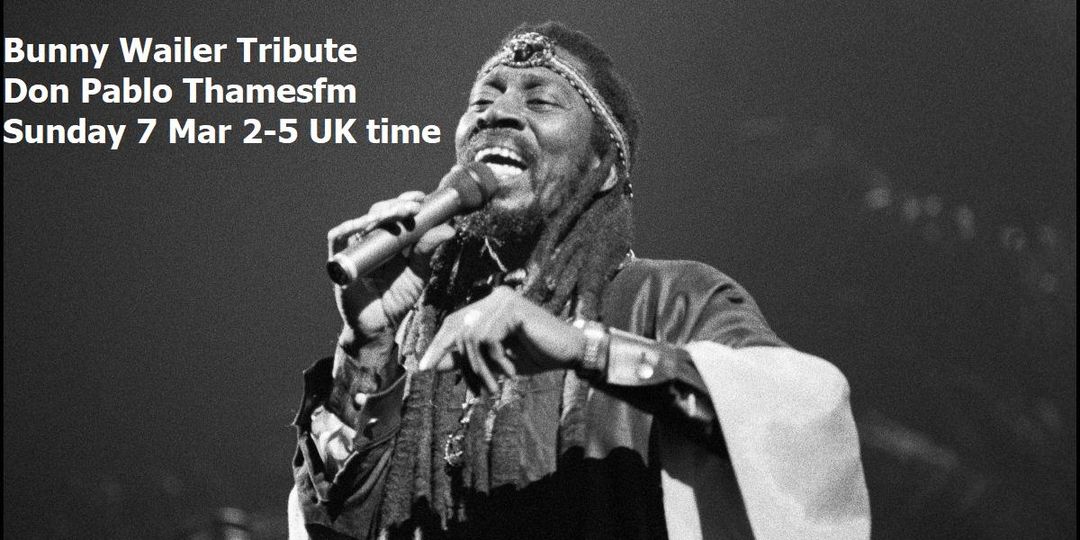
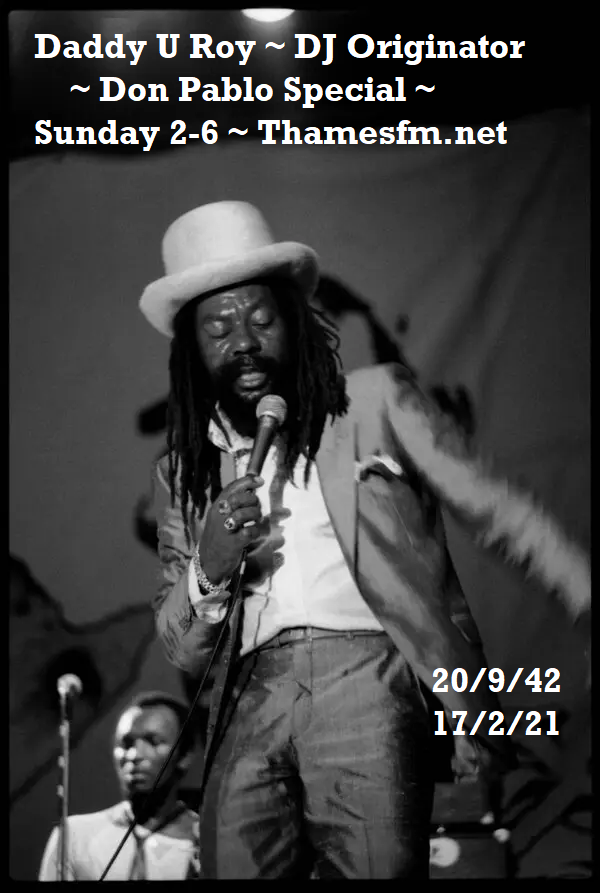
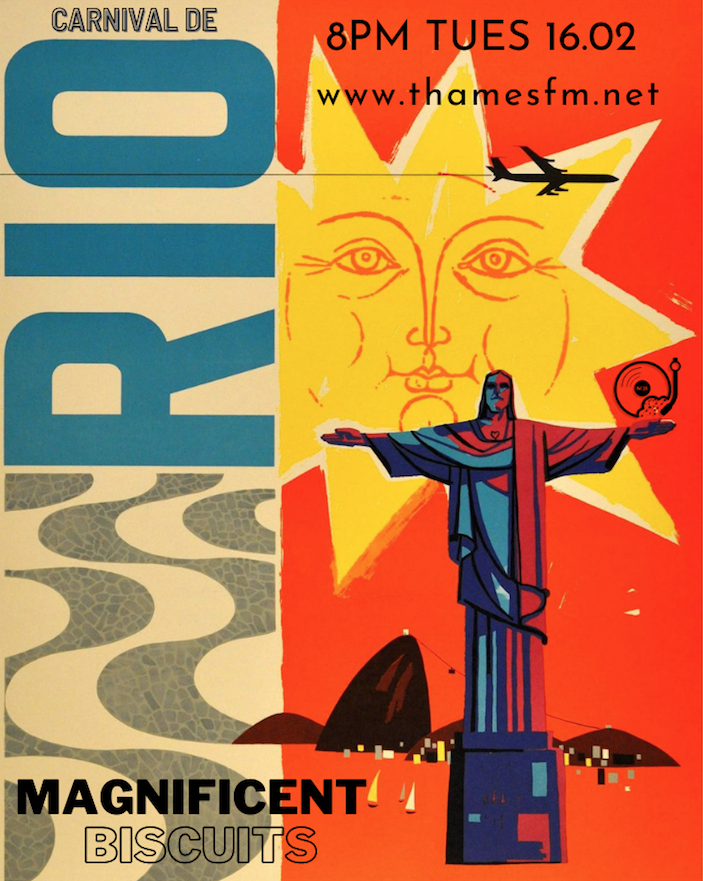
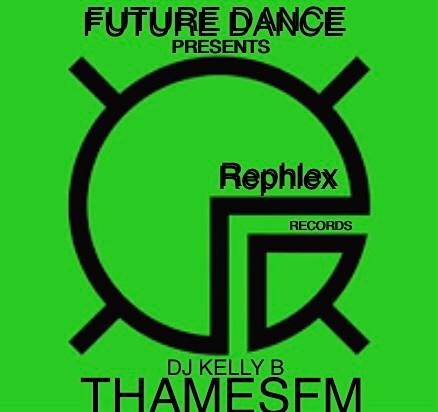
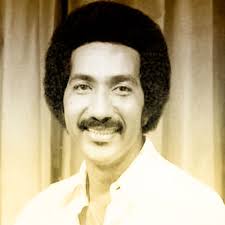
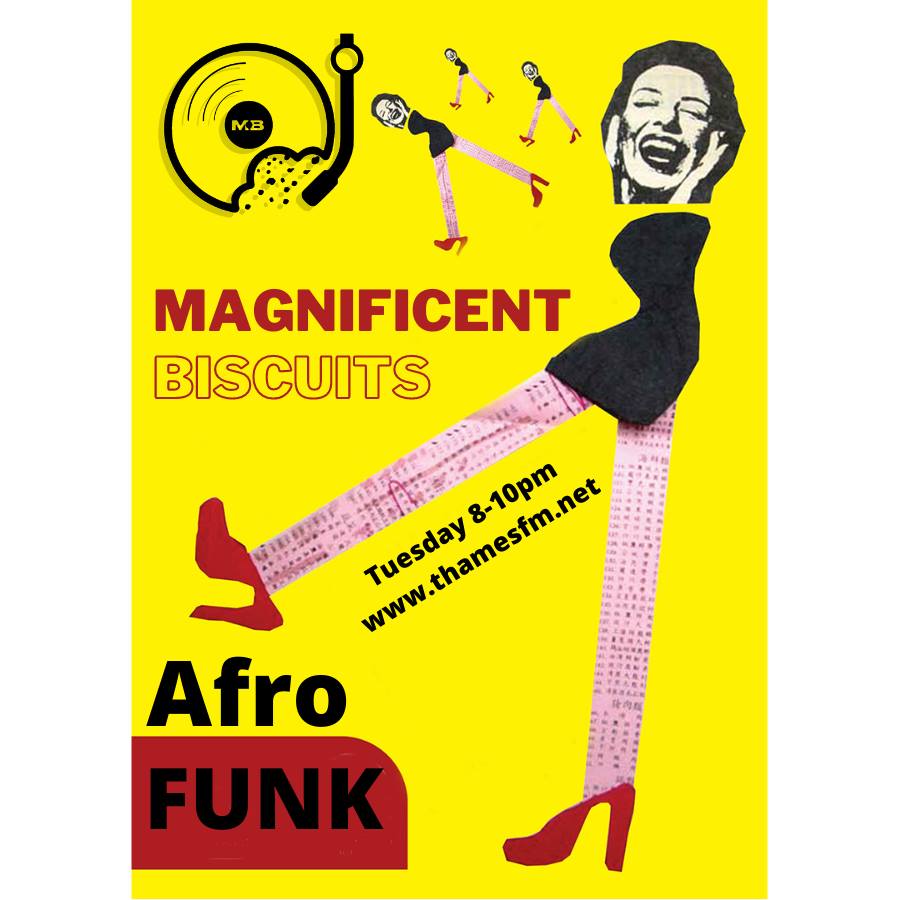

 RSS Feed
RSS Feed